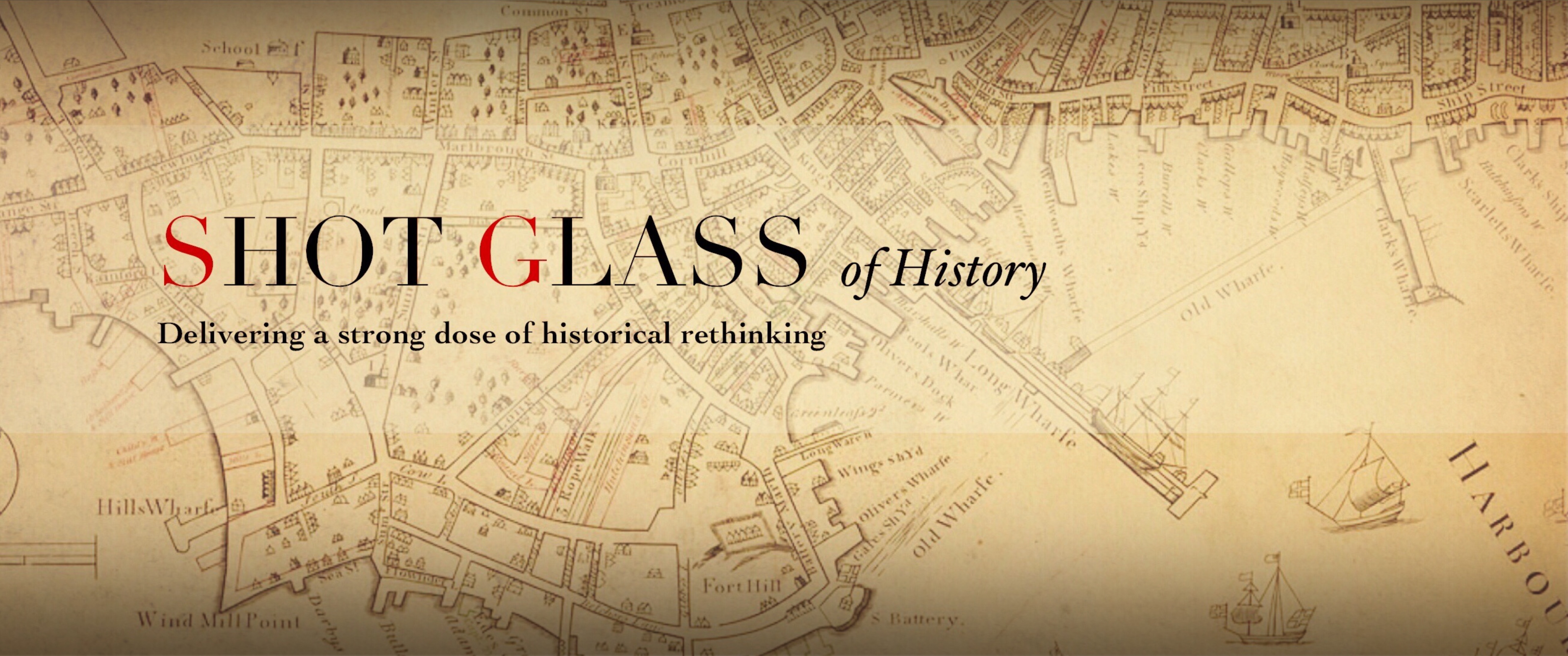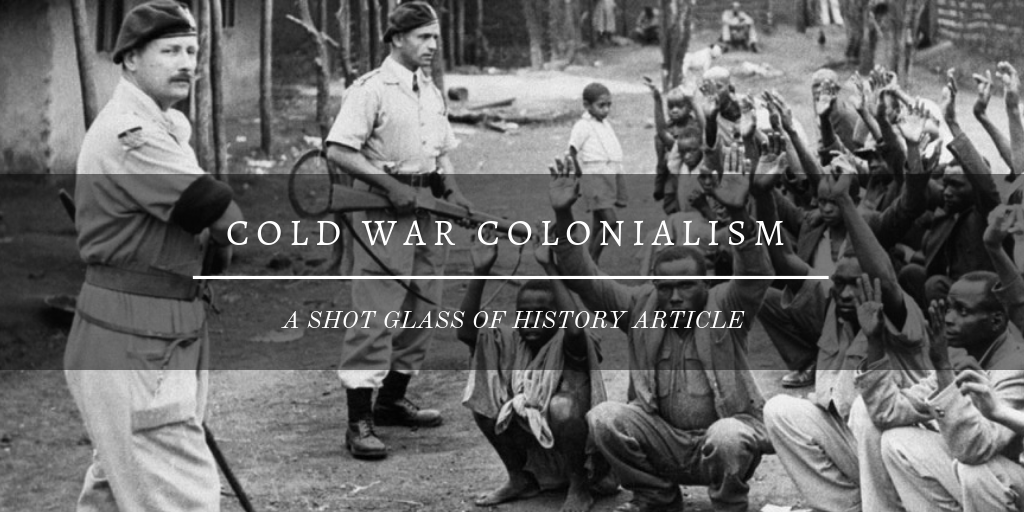American Empire: A Global History
BY A.G. HOPKINS
PRINCETON UNIVERSITY PRESS, 960 PAGES, $21.49
–
The Cold War is popularly portrayed as a tense but relatively non-violent stand off between Soviet style Communism and Western Democracy. However, for most of the world this period was an openly violent confrontation between European imperial powers and Communist-backed colonial nationalists.1 Indeed, as A.G. Hopkins recounts in American Empire: A Global History, Europe did not give up imperialism in the 19th century; in fact it did not end direct imperial control until the 1960s, when it had become absolutely infeasible to retain its colonies.
This was especially true for Britain and France. WWII had ravaged their economies, and their plan to rebuild involved economically stripping their colonies for wealth in order to pay back their creditors both at home and abroad. This policy required immense U.S. financial and political support to get the program off the ground, and fortunately for them, while the U.S. was naturally inclined to look askance at imperial expansion, they were more than willing to lend a helping hand if it meant bolstering a united defense against the Soviets. However, the conflict with the Soviet Union was being cast as an ideological struggle between democracy and communism, and this required the western democracies to figure out how to square their proposed imperial policy with their defense of democratic sovereignty. Europe’s economic planners believed that they could achieve popular colonial support for imperial expansion if they also instituted an expanded internal improvement and welfare system.
To garner democratic support from their colonies France began a massive welfare program “which was responsible for investing more capital (in real terms) in French Africa between 1947 and 1959 than had been invested during the previous sixty-five years” (Hopkins, American Empire, p. 478). Britain also followed suite by massively increasing its Colonial Development and Welfare Act of 1940, which included a “package of reforms featuring increased development expenditure, greater political participation, and improved welfare programs. The policy had broad political support and was designed to strengthen the empire, not to dispose of it” (p. 489).
Colonized nationalists took this supposedly increased generosity from Europe as an opportunity to push for independence, and it quickly spread throughout all the imperial holdings. “India had led the way in the 1920s and 1930s; Southeast Asia, the Middle East, and Africa followed in the 1940s. Protest ceased to be confined to sporadic, single-issue politics attached to particular regions or occupations, and was directed instead into permanent parties with aspirations for independence“ (p. 479).
However Britain had no intention of giving up their empire, and tensions quickly began to appear as the Treasury won out over the Colonial Office in the struggle between getting the post-war empire back onto a firm financial footing, and the need to placate colonial peoples with economic handouts. The British government’s first and foremost goal was to breathe life into the mother country, and to do so regardless of what it cost the colonies. “We could scarcely have done better” Britain’s chief economic advisor proudly declared in 1954, “if we had intended to exploit the Colonies” (p. 482). But blowback was quick to follow. “Even as he wrote, however, the political costs of the exercise which stoked resentment in the colonies, were rising to levels that would soon be beyond control” (p. 482).
Britain soon found itself forced to put out fires all over its empire. They reluctantly cut some colonies loose, such as India in 1947-1948, followed by Ceylon, Burma, and Palestine, while others they attempted to reincorporate into the empire-Commonwealth with vague promises of independence once the colony had been designated as “viable” for self-governance. The British government intentionally used such vagueness in order to provide themselves with the ability to choose between either indefinitely delaying colonial independence or jettisoning the colony if it became necessary to disentangle the mother country from a quagmire. Meanwhile in 1948, 40,000 British and Commonwealth troops were sent to suppress a full scale guerrilla uprising in Malaya. Then in 1954, 45,000 British and 34,000 French troops were sent to prevent Egypt from nationalizing the Suez Canal. That same year 25,000 British troops were engaged in Nairobi and Kenya in an attempt to bring an end to the Mau Mau Rebellion.
France was also busy fighting to maintain its imperial hold in Indo-China, where the French were beaten to a bloody defeat in 1954. The loss of Indo-China was a crushing blow to French prestige and morale, and intensified their resolve to maintain control when Algeria made a bid for independence that same year in 1954. But the Algerian conflict became yet another brutal war of occupation that stretched on for years.
By this point in the mid-1950s the United States was reassessing Britain and France’s imperial possessions, and came to the conclusion that the colonies had served their purpose in rejuvenating Europe. By this point, the war against the Soviets could be fought without colonial assistance, and in fact the colonies were now more of a liability than an aid. Britain and France’s heavy handed policies had only increased hostility to Europe and strengthened third world nationalism, opening the door to Soviet interference in the resulting conflicts.
In 1945, the Allies anticipated that reformed, progressive empires would advertise the merits of the Western way of life. By the mid-1950s, amidst colonial wars, ‘emergencies,’ continuing unrest, and manifest poverty, the record had fallen far short of expectations. The shortfall mattered because the Cold War had entered a new phase of ‘competitive coexistence,’ which committed the Free World to demonstrate the superiority of Western systems of political economy. Greater progress was needed on all fronts if Soviet influence was to be kept at bay. Accordingly, in 1956, even before the Suez crisis, British and American officials agreed that the African colonies were to move ‘towards stable self-government or independence’ as rapidly as possible, ‘in such a way that these governments are willing and able to preserve their economic and political ties with the West.’ Fortunately for British policy, the view from Washington suited the new direction marked out by the Treasury’s own assessment of Britain’s future interests. (p. 488)
Britain thus conceded independence to Malaya and the Gold Coast in 1957, Nigeria in 1960, and nearly all the rest of Africa and the West Indies by 1964. France granted Morocco and Tunisia independence in 1956, and French West Africa in 1960. However, Algeria was only given up in 1962 after a brutal war of attrition. The disaster there was so devastating that it led to an attempted military coup in France that eventually did bring about the end of the Fourth Republic in 1958.
Meanwhile other countries were also at various stages of decolonization. “The Netherlands pulled out of Indonesia in 1949; Portugal battled on until 1974 in a costly attempt to hold on to its large African colonies; various islands and enclaves remain colonies even today” (p. 483). But largely by 1960 European colonization had played out its role and was ready to be retired.
[T]he colonial empire, having been resuscitated, reformed, and reintegrated after 1945, expired at the close of the 1950s. A decade after the empires had been given infusions of money and purpose, they were beyond resuscitation. No new Romes were to be built; no new Romes were needed. (p. 490)

Footnotes
- This particularly has been the subject of a recent book by Paul Thomas Chamberlin: The Cold War’s Killing Fields: Rethinking the Long Peace (New York: Harpers, 2018). For a more general history of the Cold War, Odd Arne Westad also has a phenomenal work: The Cold War: A World History (New York: Basic Books 2019).

